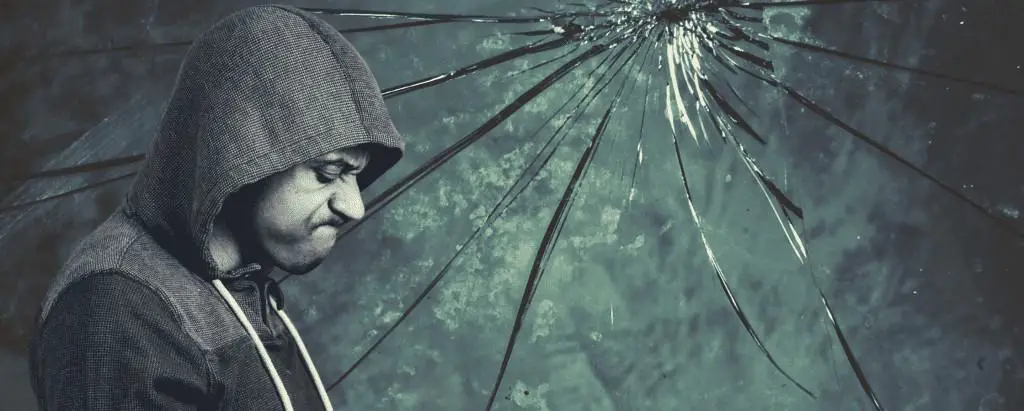The adverse effects of Fragile Masculinity on our society are too significant for us to ignore anymore. We need to start talking about this issue to help ourselves and others heal from its effects.
But wait… What does Fragile Masculinity mean?
This article will explore what Fragile Masculinity is, its negative effects on society, and how we can all work together to create positive change.
Meaning Of Fragile Masculinity
Meaning Of Fragile Masculinity
Fragile Masculinity is a term that refers to the anxiety felt by men that believe they are falling short of cultural standards of manhood. It is not a recognized medical condition in its own right. Still, it can lead to severe problems such as depression and substance abuse.
The term Fragile Masculinity was first used by the author Jack Halberstam in 1998 to describe how Masculinity has been constructed as something that needs to be protected, defended, and upheld.
Fragile Masculinity develops out of a fear of being seen as feminine or weak, and it’s often used against men who are gay or transgender. It also applies to heterosexual men who have had their manhood questioned for any reason.
Identifying Fragile Masculinity:
- If someone feels they need to act out to be seen as masculine or have any self-worth
- If someone is afraid to be vulnerable in front of other men because they believe it makes them more feminine
- If someone feels the need to assert their Masculinity by being tough, aggressive, or competitive
Now that you have read this definition and outline, reflect on the role Fragile Masculinity plays in your life and/or in the lives of people you know.

IS FRAGILE MASCULINITY DIFFERENT FROM TOXIC MASCULINITY?
Fragile and Toxic Masculinities are both an exaggeration of Masculinity out of fear. However, there is still a difference between the two. Fragile Masculinity is internalized, while Toxic Masculinity is externalized behavior.
Toxic Masculinity has to do with how men view their own gender as well as other genders. It is a system of oppression in which males have power over females and transgender people by using violence and aggression to maintain their Masculinity.
Fragile Masculinity, on the other hand, has more to do with how men view themselves and how they fulfill what they perceive as their role as a Masculine member of society. This can make them downplay traits that might be considered feminine or exaggerate traits seen as Masculine to overcompensate.
Fragile Masculinity and Men’s Health
Men are often socialized not to show or express their feelings, which can lead them to experience symptoms of depression if they don’t seek help for the problem. Fragile Masculinity can be part of an anxiety disorder or social phobia, and men will often avoid situations where they fear being judged.
The paper on “The Political Significance of Fragile Masculinity” stated:
“Fragile Masculinity has been found to predict aggressive beliefs and behaviors. In particular, the construct of gender role discrepancy stress—some men’s abiding sense of anxiety about not living up to masculine norms—is associated with risky and aggressive behavior.”
Another study by the American Psychological Association found that Fragile Masculinity leads men to take bigger financial risks.
In fact, a study shows that Fragile Masculinity might even be genetic. A study done at the University of South Florida found that people with low testosterone are far more likely to exhibit Fragile Masculinity and be affected by threats to their gender role.
This could be because low testosterone can lead to a lack of confidence as well as mood swings, depression, fatigue, irritability, and anxiety.
FRAGILE MASCULINITY AND THE LGBT+ COMMUNITIES
Fragile Masculinity also affects the transgender and genderqueer community.
Transgender men may develop Fragile Masculinity due to striving to conform to traditional definitions of manhood and fear that they will be exposed as feminine. This can leads them to avoid any behaviors or feelings that might cause others to question their Masculinity.
Transgender men might also lash out at anyone that breaks the strict adherence to masculine expectations as a way of protecting their own Fragile Masculinity.
Transphobia can also be a byproduct of other people’s Fragile Masculinity. An article by Slate entitled “Fragile masculinity is pushing trans folks out of male spaces,” states:
“It’s no surprise that so few male spaces include trans men, cis men, and transmasculine folks all together. Patriarchy tells us that men deserve a place of privilege that is untainted by femininity. At some point in their lives, many men experience the threat of emasculation, the fear of seeming womanly. In response, individuals whose identity calls into question the purity and privilege of traditional Masculinity may be seen as a hazard.”
Gay men might also struggle with their identity and overcompensate to prove their Masculinity. In some cases, gay men might feel so protective of their own Fragile Masculinity as to perpetuate discrimination against transgender and genderqueer people.
OVERCOMING FRAGILE MASCULINITY
Psychiatrist Dr. Bradley Staats says, “If a man is feeling Fragile and has difficulty identifying his emotions, it can lead to increased stress levels that makes him more vulnerable to developing anxiety.” He says that the best way for men with Fragile Masculinity syndromes to heal themselves is by talking to a friend or therapist and finding the root of their problem before it escalates.

In therapy sessions, “men will often find that they are not as alone in this experience as they thought,” Staats said.
Therapy is also helpful because it can provide men with strategies for coping. When challenging moments arise, such as feeling Fragile, it is easier to know what to do.
Some preventive measures may include:
- Avoiding homophobic/transphobic jokes and comments
- Talking about unmanly feelings openly and without judgment
- Being open to diverse masculinities
- Learning how to set boundaries
Some healing measures may include:
- Talking about unmanly feelings openly and without judgment, especially with friends who identify as masculine of different gender identities than the person considering FFragile Masculinity
- Seeking professional help
- Participating in groups for men that have a wider spectrum of Masculinity
- Learning how to set boundaries
Expanding the Definition of Masculinity
The reason many fall victim to Fragile Masculinity is because of the strict and limited definition of Masculinity that our society gives us.
The definition of Masculinity has changed from generation to generation, usually as a reaction to what is needed in society at that moment. The Masculinity of the 1950s was very different than the 2000s.
Read more with my deep dive into what Masculinity is.
We can combat Fragile Masculinity by using a wider definition of Masculinity—one that is more inclusive and nuanced for the individual.
I have found Masculine Archetypes to be a great tool in exploring Masculinity and to offer up a wider, yet more succinct, the definition of Masculinity. The Archetypes allow an individual to see the different parts of their identity and heal the impacts of Fragile Masculinity.
This is what inspired the Masculine Archetype Deck.
I created it as a physical tool that anyone can use to learn about their Masculinity. It includes five major Archetypes (Warrior, Wizard, Father, Lover, and Sovereign), Sub-archetypes, and Shadow Aspects. They can be used to understand the subtle facets of your identity and break down the internalized stereotypes that can lead to Fragile Masculinity.
>>> Check out the HeroRise Masculine Archetype Deck <<<




